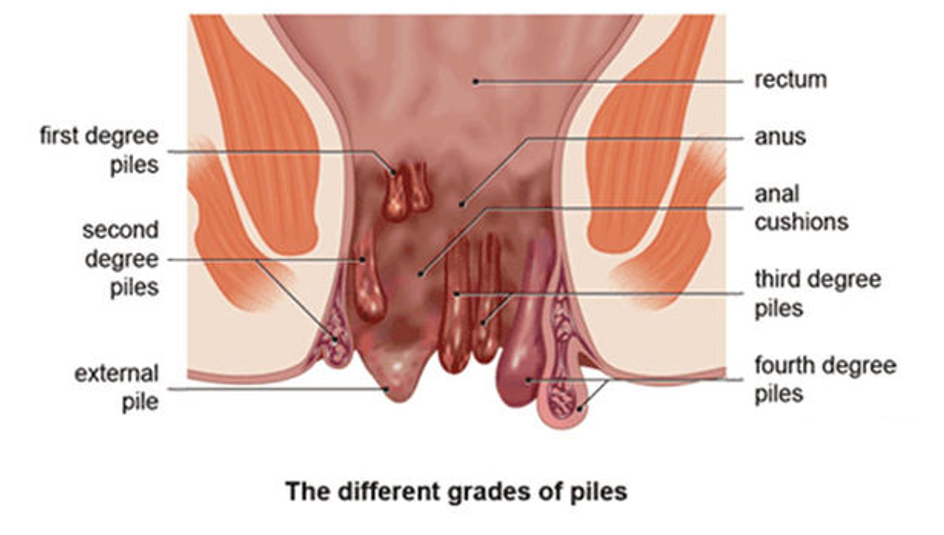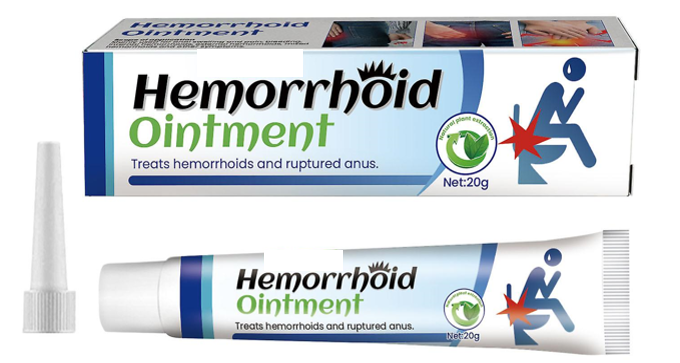Haemorrhoids
According to NHS UK NHS UK Piles "Piles (haemorrhoids) are lumps inside and around your bottom (anus). They often get better on their own after a few days but sometimes medications are needed".
Piles are actually swollen blood vessels.
It's not clear what causes them but several things make piles more likely including:
- Constipation
- Pushing too hard when pooing
- Heavy lifting
- Pregnancy
There are things you can do to treat and prevent piles including:
- Drinking lots of fluid and eat plenty of fibre to keep your faeces soft
- Wiping your bottom with damp toilet paper
- Taking analgesics e.g. Paracetamol if piles hurt
- Taking a warm bath to ease itching and pain
- Using an ice pack wrapped in a towel to ease discomfort
- Gently pushing a pile back inside
- Keeping your bottom clean and dry
- Exercising regularly
- Cutting down on alcohol and caffeine (like tea, coffee and cola) to avoid constipation
- Not wiping your bottom too hard after you defecate
- Not ignoring the urge to defecate
- Pushing too hard when defecating
- Not taking opiod painkillers e.g. Codeine as they can cause constipation
- Not taking NSAID's e.g. Ibuprofen when piles are bleeding
- Not spending more time than you need to on the toilet
Symptoms of piles include:
- Bright red blood after you defecate
- Itchy anus
- Feeling like you still need to defecate after going to the toilet
- Mucus in your underwear or on toilet paper after wiping your bottom
- Lumps or pain around your anus
- Creams and Ointments to ease the pain, itching and swelling e.g. Anusol and Preparation H
- Treatment to help constipation and soften faeces
- Cold packs to ease discomfort
A GP / Specialist referral might be needed if the customer / patient has :
- Symptoms of piles and they're getting worse or there's no improvement after 7 days of treatment at home
- Repetitive piles that keep coming back
- They notice a change around their anus that is not normal for them


